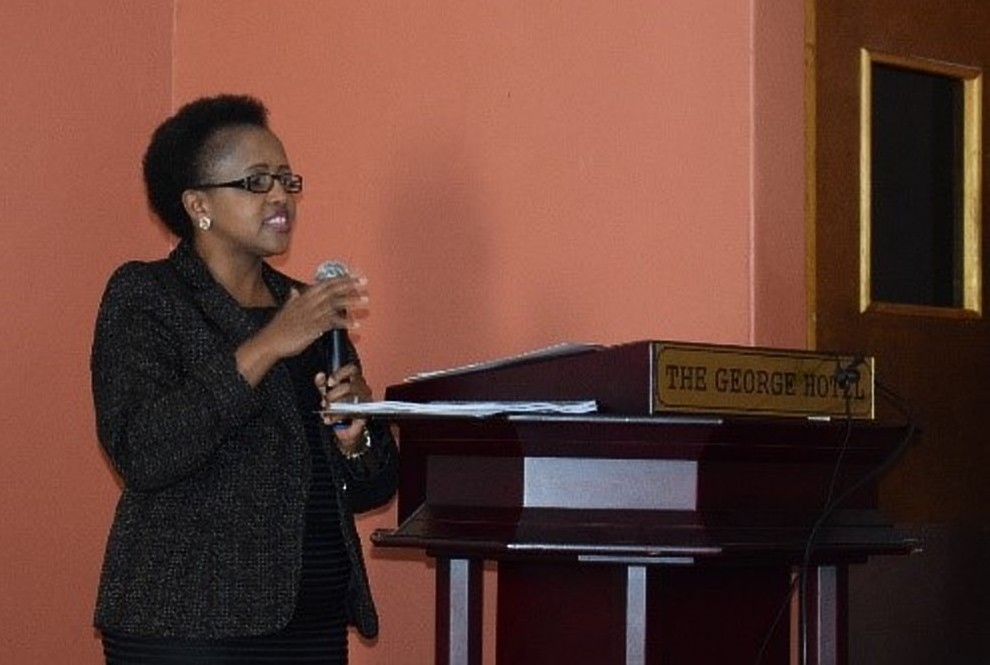
Dr Rejoice Nkambule, Deputy Director Health Services – Public Health, formally launching research unit on behalf of the Ministry of Health
A new research organisation in Eswatini has been launched building on the previous work of COMDIS-HSD, which has delivered applied public health research in the Lubombo Region for 10 years. The Lubombo Health Research Unit (LHRU) is a collaboration between the Bradford Institute for Health Research, Eswatini Ministry of Health, Lubombo Regional Health Management Team and Good Shepherd Hospital, Siteki.
The organisation aims to catalyse and support the design, delivery and application of innovative research focused on improving the effectiveness, efficiency and accessibility of healthcare interventions in the Lubombo Region.
“Science is most effective when researchers with overlapping interests collaborate,” said Dr Rejoice Nkambule, Deputy Director for Health Services – Public Health, who formally launched the research unit on behalf of the Ministry.
Nkambule highlighted the benefit of routinely integrating evidence into all aspects of health care, and outlined Eswatini’s aspiration to be an international leader in high-quality health research. She explained the role of LHRU in meeting these objectives and thanked COMDIS-HSD for strengthening research capacity in Lubombo.
Lubombo has a number of challenges in delivering health care, as its predominately rural population means many people live in isolated communities. Current HIV prevalence is 29.4% and increases in non-communicable diseases, such as diabetes and hypertension, are a growing concern.
“Female BMI in Eswatini is now the highest in Africa,” said Dr Nick Riches, LHRU Public Health Registrar. “Diabetes prevalence is set to increase by 50% between 2010 and 2025. We have to look at these patterns and what interventions can prevent them.”
Riches gave a summary of the LHRU strategy, including its vision, aims and values. He outlined the intended structures and procedures of the new unit and provided a summary of current and recent research delivered through the UK-Eswatini link.
“Lubombo is leading the way in non-communicable disease decentralisation,” he said. “The region is a great place to stress test interventions: if it can be done in Lubombo, it can be done anywhere.”
“What we are doing in Lubombo can be, and is being, replicated elsewhere in Africa and the majority of the world. The foundation of this unit is a real opportunity for Lubombo and Eswatini to lead in applied global health research.”

